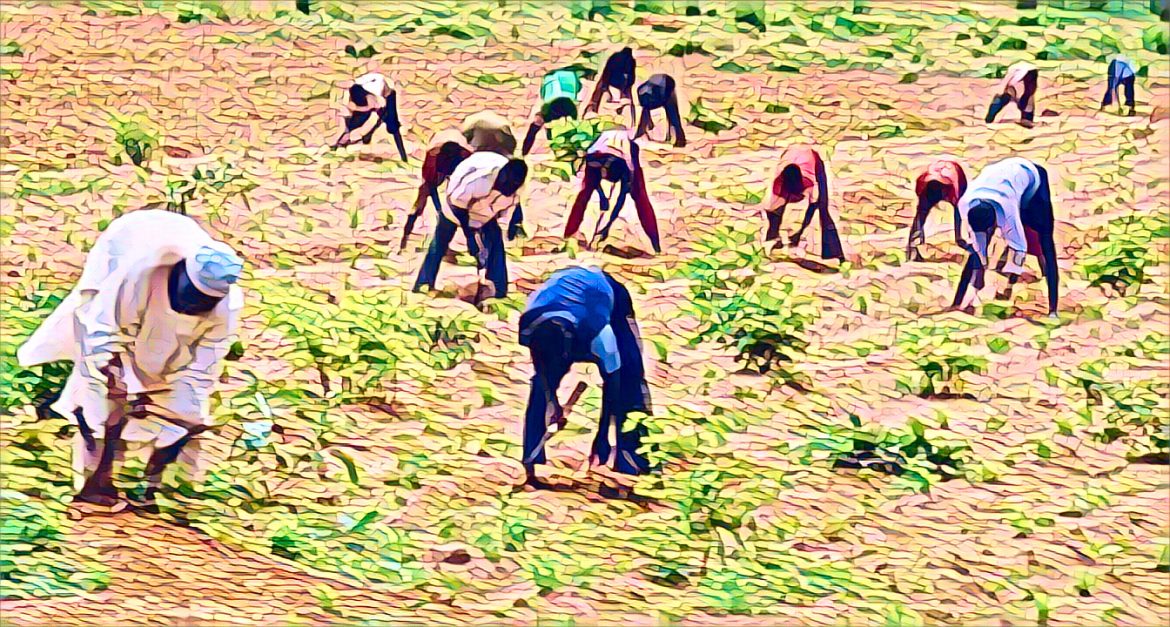Farmers in Ondo State are raising concerns over the hijacking of agricultural inputs by politicians. These inputs, provided by the Federal Government to support genuine farmers and enhance food security, are being diverted to individuals with political connections, leaving many real farmers without the resources they desperately need.
In a recent event held in Akure, stakeholders from the agricultural sector, including the Small-Scale Women Farmers Organization in Nigeria (SWOFON) and the Justice Development and Peace Centre (JDPC), expressed their frustration over how political influence is disrupting the fair distribution of farm inputs. These inputs, which are critical for boosting crop production and ensuring food security, are not reaching the intended beneficiaries due to the interference of politicians.
The JDPC presented data showing that in all 18 local government areas of Ondo State, political meddling has significantly hindered the proper distribution of these inputs. As a result, many smallholder farmers, especially women, are unable to access the resources they need to sustain their livelihoods.
According to the data, a staggering 94% of the farmers surveyed had no idea how to access the agricultural support services that were supposed to be available to them. Only 6% reported having any experience with these services, and none had full access. This lack of awareness and access is a direct consequence of the politicization of the distribution process.
The report also highlighted issues with the timing of interventions, making them less effective. For instance, nearly N1 billion was allocated in 2021 for food security and sustainable livelihood projects under the FADAMA program, but the spending of these funds remains unclear, and many farmers did not benefit from them.
Stakeholders identified several challenges that smallholder women farmers face in accessing the support they need:
- Exclusion from Planning and Implementation: Smallholder women farmers (SHWF) were excluded from the planning and implementation stages of the NG-CARES (ONDO-CARES FADAMA) intervention, resulting in programs that do not address their specific needs.
- Low Awareness: There was minimal publicity about the NG-CARES (ONDO-CARES FADAMA) programs, especially in rural communities where most SHWFs live, leading to widespread unawareness among farmers.
- Inadequate Data Capture: Poor data management excluded many SHWFs from the list of beneficiaries, further marginalizing them.
- Lack of Training: Farmers lacked training in modern farming techniques, essential for adapting to climate change and improving food production.
To address these issues and ensure agricultural inputs reach the right people, stakeholders made several recommendations to the state government:
- Increase Awareness: The government should launch strong and continuous awareness campaigns about the NG-CARES (ONDO-CARES FADAMA) programs, using various channels, including local extension agents, to reach all farmers, particularly in rural areas.
- Involve Farmers in Planning: SHWFs should be involved from the design stage to the implementation stage of agricultural programs to ensure they meet farmers’ actual needs.
- Provide Training: Farmers should receive training in modern farming techniques to help them adapt to climate change, increase food production, and improve their livelihoods.
The politicization of agricultural support in Ondo State is more than just an issue of unfair distribution—it poses a serious threat to the state’s food security. When legitimate farmers are denied the inputs they need, crop yields suffer, leading to potential food shortages, increased hunger, and worsening poverty, particularly among vulnerable groups like women farmers.
To achieve sustainable food security in Ondo State and Nigeria as a whole, it is crucial that the distribution of agricultural support is fair, transparent, and focused on the needs of those who depend on it most. Without these changes, the goal of ensuring food security and economic stability will remain out of reach.
Source: Vanguard


